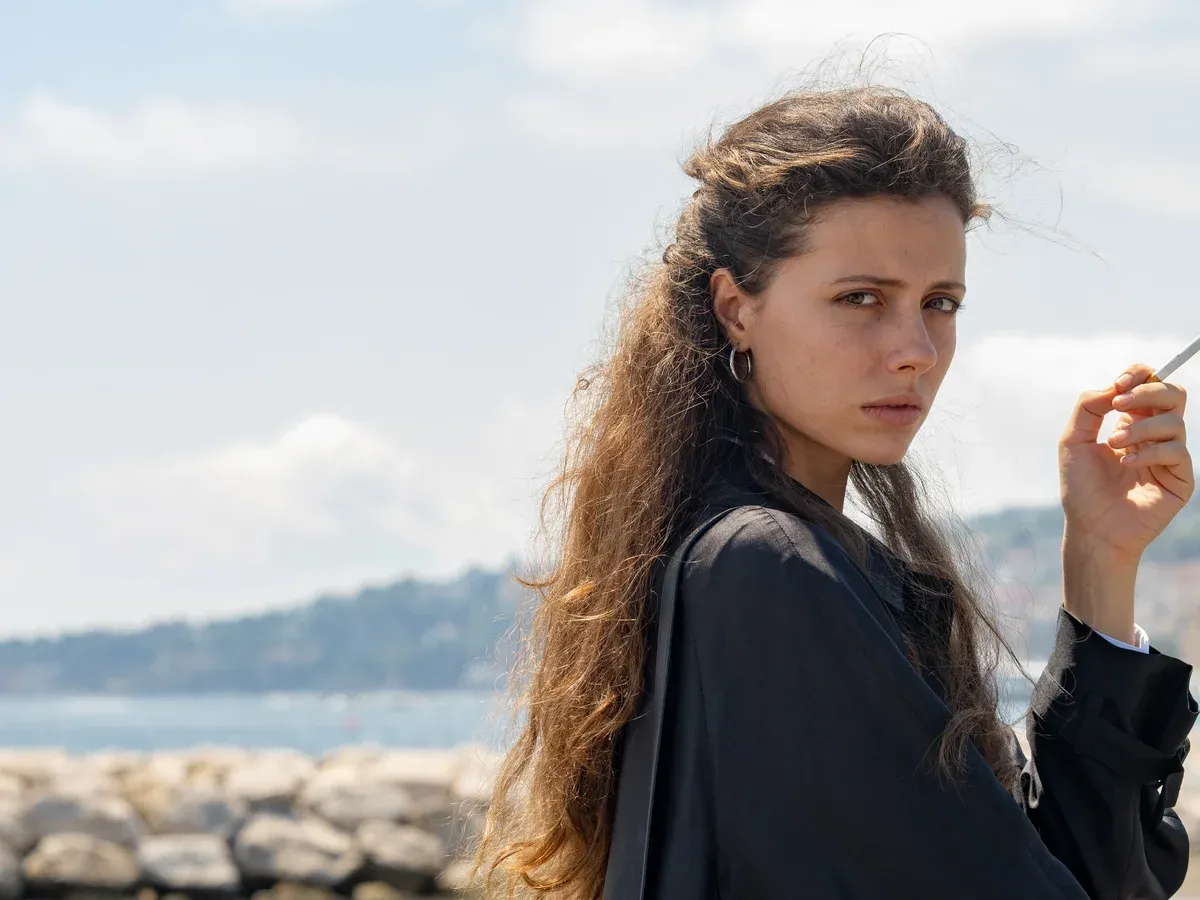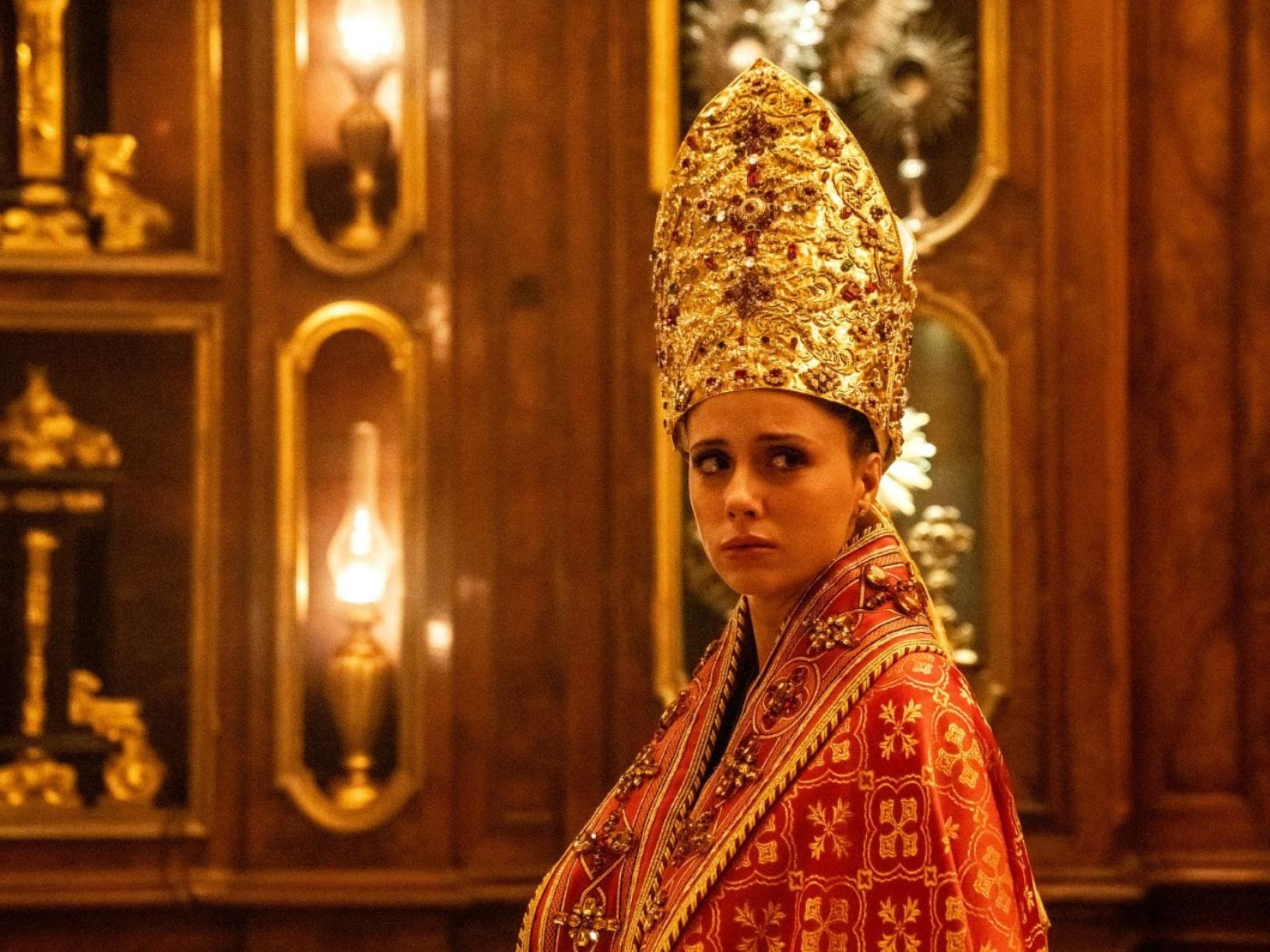Parthenope
Parthenope the movie is surprisingly not as superficial as it appears on the surface - just like Parthenope the woman.

Directed and written by Paolo Sorrentino, with an IMDB page that boasts 2 wins and 18 nominations for prestigious film awards and festivals such as Cannes, Aegean and Capri in Hollywood, Parthenope is a coming-of-age story about a beautiful young woman named named Parthenope (after the ancient Greek settlement in Naples which her house offers a clear view of), to affluent parents in Naples, Italy.
The movie opens at the moment of Parthenope’s birth, a water-birth that her mother has in the ocean of Naples, under their impressive-looking home. Parthenope’s dad is involved in some kind of vague and likely shady profession, meaning he has a lot of money, a sleazy personality and shady-looking friends who hang around his home during the day. Parthenope’s mother is a housewife whom we don’t really see often on-screen, and her brother is privileged, but directionless and troubled. We don’t learn very much about these characters' motivations or histories, as Sorrentino’s movie focuses entirely on Parthenope.
The first thing anyone notices about Parthenope, including the viewer, is that she is incredibly beautiful (often called a Goddess by the men who encounter her.) Sorrentino’s first shot of Parthenope as a young woman is a very typical scene - a beautiful woman steps slow-motion out of the ocean in her bikini ‘James Bond girl style.’ There are scenes which the feminist viewer, like myself, might roll her eyes at; such as the part where one of Parthenope’s many male admirers sniffs Parthenope’s bikini that she has left out to dry, or the middle-aged alcoholic male character who asks Parthenope if she has any awareness of the “disruption” her beauty causes.
However, Parthenope the movie is surprisingly not as superficial as it appears on the surface - just like Parthenope the woman. Although Parthenope is often followed by a small crowd of men willing to do anything to seduce her and is also offered fame as an actress for her great beauty, Parthenope rarely takes the men up on their offers of seduction and her potential career as an actress proves to be a shallow, false dream. By the end of the film, we have seen Parthenope experience close grief, witness the student riots of the 70s, have an illegal abortion (let us not forget that Italy has always been an incredibly strict Catholic country), have sex with a priest, graduate at the top of her class and become an Anthropology professor. She also has not married or had children by the time she is middle-aged, which is only worth note-worthy because Parthenope certainly has had no lack of men offering their love to her.
As I’ve said, there are certain aspects of this movie that I would have changed (if I had the power and skills to do so.) Other than Parthenope herself, all of the women in this film are very lonely and act as though they are ‘past-their-prime’ because they are middle aged. Parthenope doesn’t really have any friends, apart from her brother and later, her male professor. We aren’t told what Parthenope’s interests are, other than occasionally reading about anthropology by (obviously, male) American authors.
I wouldn’t call this movie feminist, but there are parts of Parthenope’s story that can be read as such - her decision to go into academia instead of using her looks to get by in life, the kindness and empathy Parthenope shows towards her pregnant female students, and that she has not married or had children by the film’s end.
Overall though, I would say that this movie has some interesting takes on our society’s idolisation of youth and beauty, especially in women, and some of the constraints of being a beautiful woman - such as that people expect you to “take advantage” of your youth and beauty, by using it as a career or having many lovers at all times, and that wealthy men will try to covet you as a trophy. As one female actress says to Parthenope, “Men are always offensive towards very beautiful women.”




